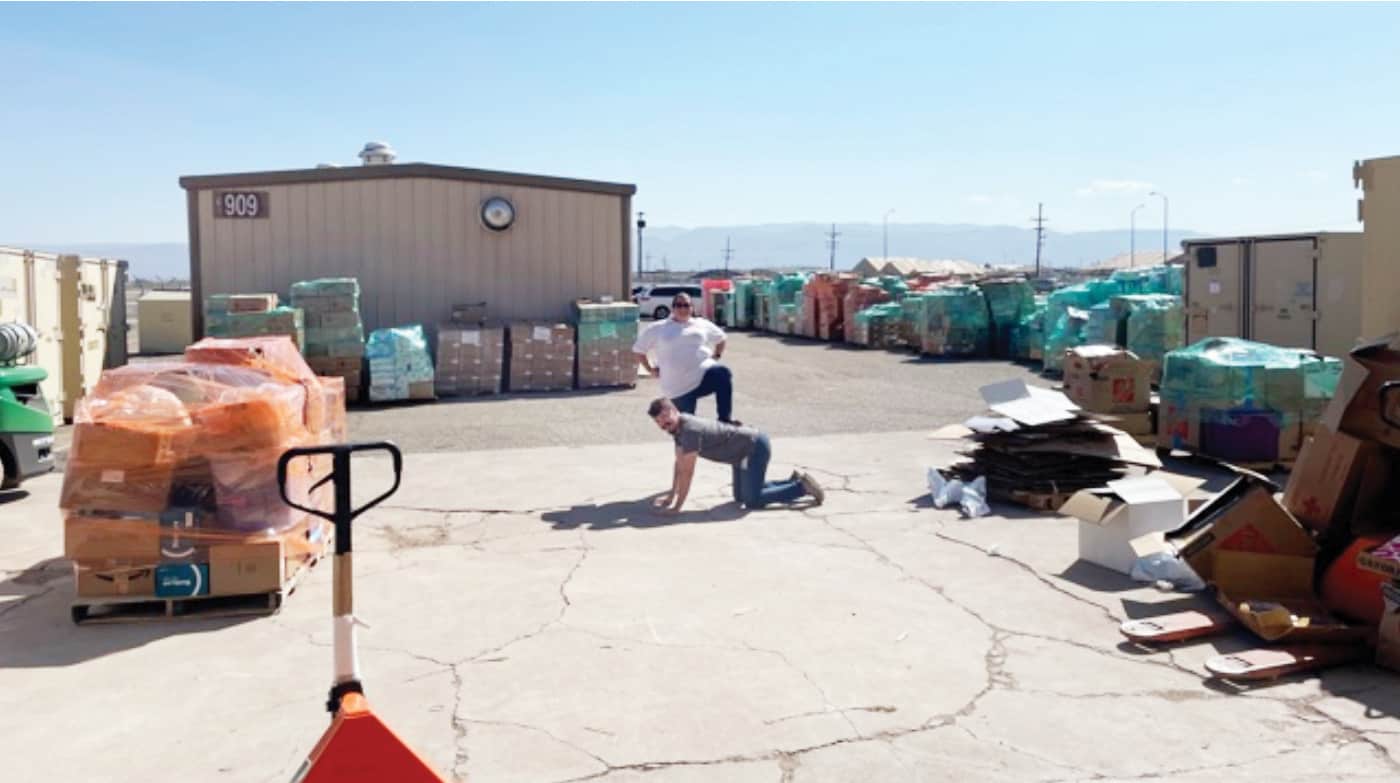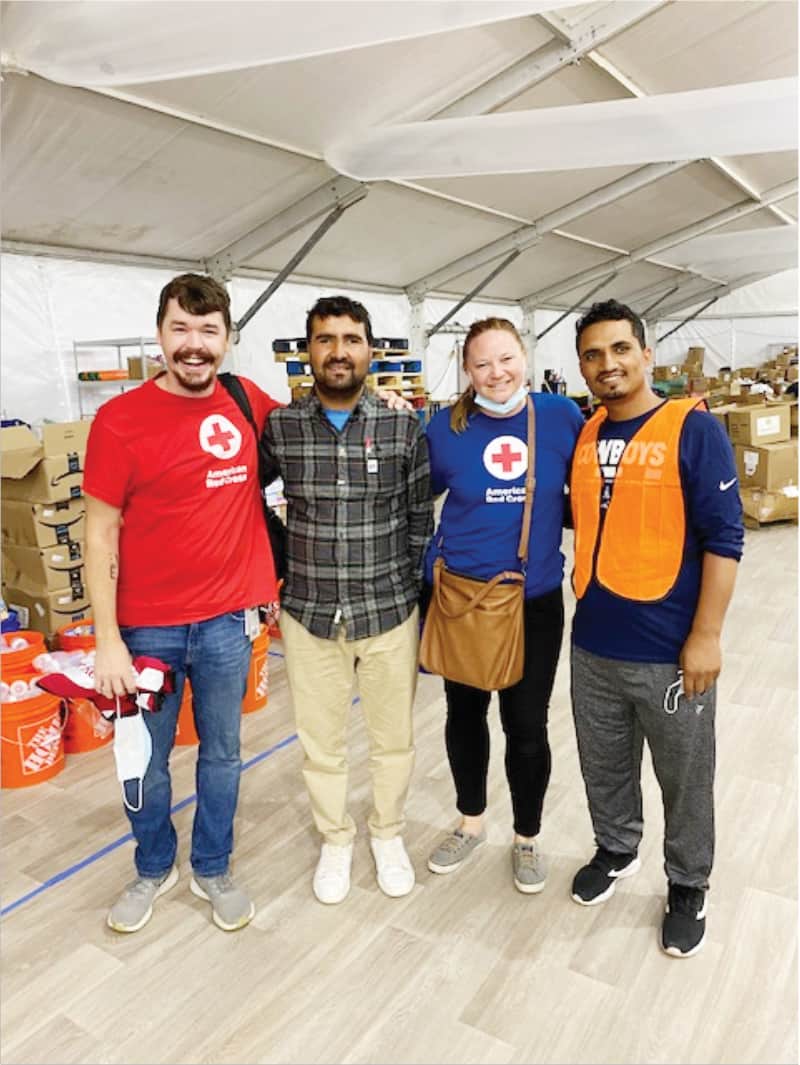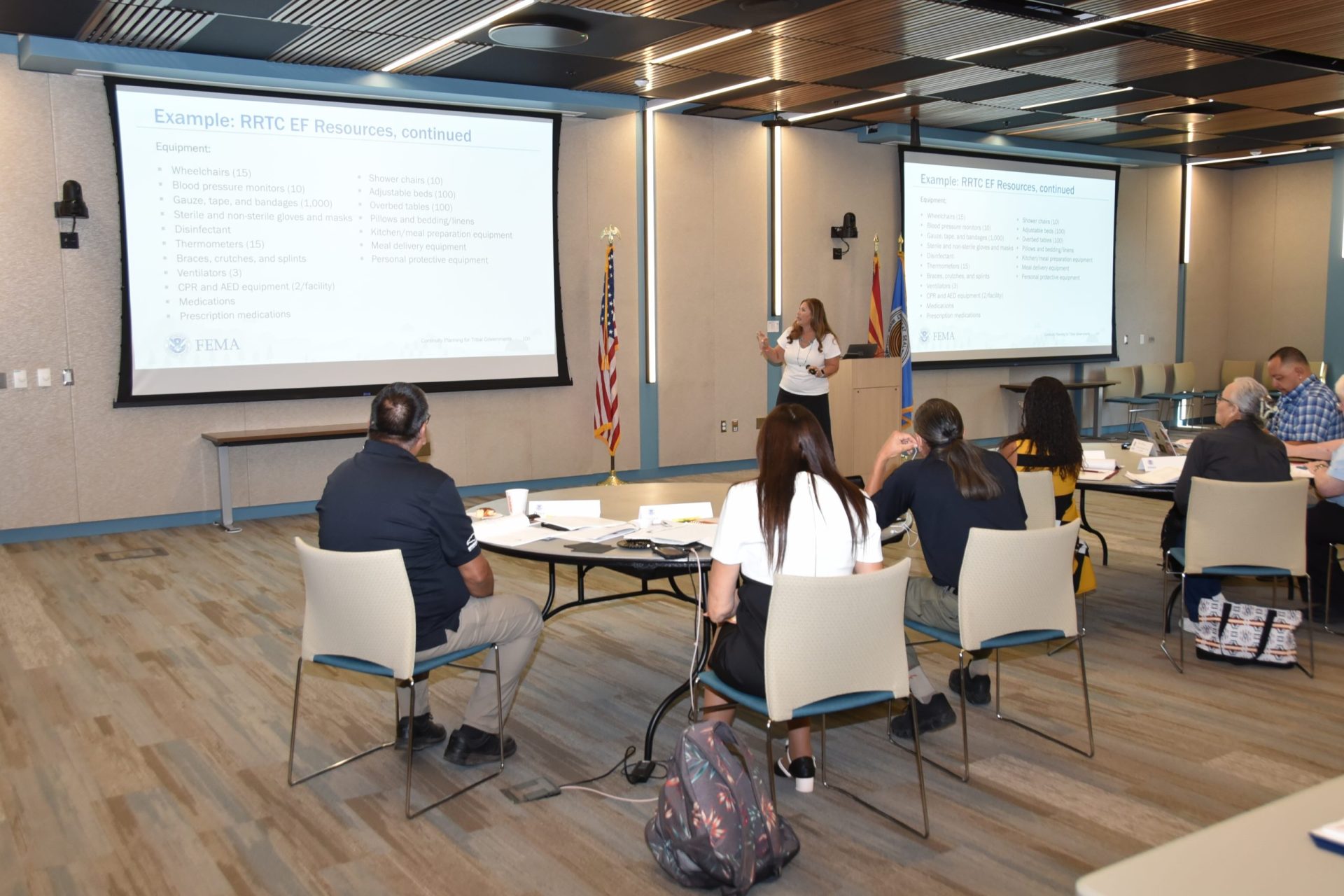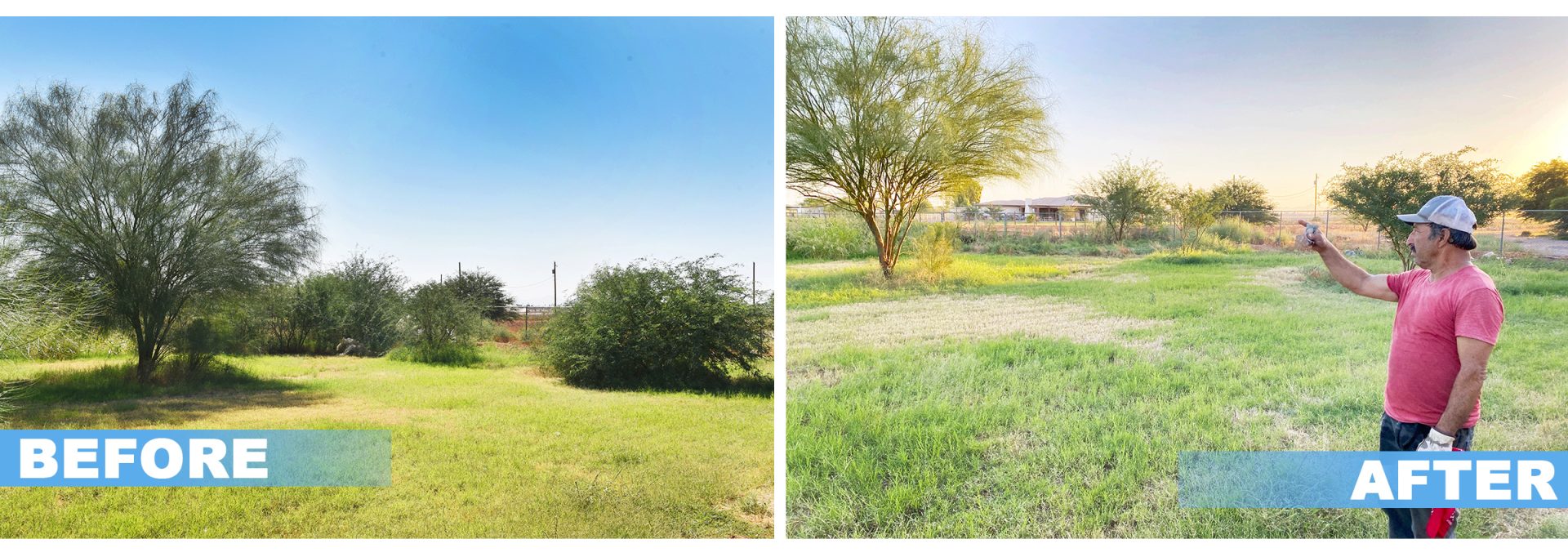VIEWS: 2020
November 18, 2021Emergency Management Coordinator Assists American Red Cross with Afghanistan Evacuees in New Mexico
In August, Salt River Pima-Maricopa Indian Community Emergency Management Coordinator Kirsten VanDeventer assisted the American Red Cross during a two-week deployment in New Mexico as part of Operation Allies Welcome. This Operation was a global response to the evacuation of Afghan civilians, allies, and US citizens with the goal of receiving and integrating Afghanistan evacuees into the United States.
VanDeventer shared her experiences and highlighted programs in the Community that Emergency Management utilizes, during the Tribal Emergency Response Commission (TERC) meeting on Monday, November 1. “When planning for Emergency Response it is critical to send staff into large scale disaster responses to enhance the Communities’ knowledge of best practices”.
At the meeting, VanDeventer talked about the Red Cross’s capabilities and what her role was during this response.
“Here in the Community, the American Red Cross comes to assist with house fires, but those capabilities expand drastically in a global response. said VanDeventer. “The American Red Cross is a humanitarian organization led by volunteers, and operates under a Congressional Charter to provide those Capabilities. This charter outlines the American Red Cross mission to provide disaster relief to victims and help them prepare for, respond to and recover from emergencies.”

As people were evacuated from Afghanistan into the United States, they were routed through the Dulles and Philadelphia international airports, explained VanDeventer. Reception Centers were set up at the airports where the American Red Cross provided; Medical, Behavioral Health Services, and financial support.
VanDeventer went to help the American Red Cross as they provided temporary care for evacuees being sheltered at eight military bases in August. More than 50,000 Afghanistan families have been evacuated into the United States, and as of October 5, more than 124,000 people have been housed at these eight military bases.
“At the time of my deployment, on September 15, there were just under 5,000 Afghanistan allies living within the Holloman Air Force Base (in New Mexico), and Holloman received the most children, which posed special considerations when we were looking at temporary housing.”
VanDeventer’s deployment assignment was to; Identify and provide for immediate needs of current evacuee population, plan for incoming populations, identify Staffing plan to include additional support, coordinate transport of donations, map and transition resources to centralized distribution, establish mentorship and demobilization of Red Cross and Salvation Army Resources to Homeland Security personnel by September 30.
“We got to work very quickly. We were operating outside for about 14 hours a day in 90-degree weather, driving to and from a warehouse picking up and delivering items and supplies to individual families,” said VanDeventer.
“As you can imagine, that’s extremely taxing and unsustainable, not to mention the staff that I had was six people,” said VanDeventer. “We had six people to serve a population of 5,000. I worked with amazing people who have big hearts, but it’s impossible to accomplish [much] with that small amount of people. Luckily, we were able to partner with Nellis Air Force Base (in Nevada), which sent us a squadron that helped wrap and organize the supplies to move to the centralized warehouse.”
VanDeventer shared some lessons learned from these operations:
1. Staffing is always an issue, get creative; find people in the community you can engage.
2. Find the barriers and break them, if it is language find a community member willing to help, if it is cultural understanding, find someone willing to help you understand.
3. Work smarter, not harder. VanDeventer explained that they went from delivering items and supplies individually to moving supplies to a centralized warehouse system where they could get items to individuals there on the spot.
4. Take care of the staff. “Offer them a good meal, trust them, and be kind; people are smart they just need the flexibility to be smart.”

This experience can help the SRPMIC respond to an unforeseen emergency or natural disaster. For example, the Community faces the risk of flooding every year, this could be monsoon rains or a dam failure.
“Opportunities like this deployment afford [emergency response] staff the hands-on practical experience where they can exercise the knowledge bases that we’re teaching them here every day in the Community,” said VanDeventer. “They better understand Incident Command System, management, emergency planning and how to work with partners under extreme pressure. All the plans that we have in place according to our emergency operations plan—like mass care, sheltering, donations and management—can all be activated at the same time, and we need to keep that in mind as we’re looking through these. This [Afghanistan] deployment in many ways is a scaled-up version of what we could see here in Salt River. So how preparing this Community, ourselves, and our partners is essential for emergency response success. Every person in this meeting today has a role to play, so make sure you’re keeping your minds and your hearts open to how we’re taking care of this Community.”
SRPMIC Emergency Manager Cliff Puckett thanked VanDeventer for going to Holloman Airforce Base and bringing that experience back to the Community, and also for giving of herself to those in need.







